While the focus of today’s Facebook announcements was the new Timeline profile, the Read, Watch, Listen media sharing apps have generated a lot of interest too. These so-called “social apps” haven’t been widely launched yet, but you can get a sense of what they will do by adding a couple of brand new newspaper social apps to your Facebook profile: The Guardian’s app and one from Washington Post.
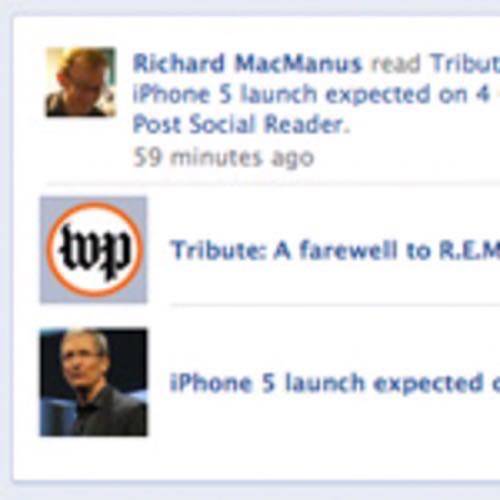
Be forewarned though, with these apps you’re automatically sending anything you read into your Facebook news feed. No “read” button. No clicking a “like” or “recommend” button. As soon as you click through to an article you are deemed to have “read” it and all of your Facebook friends and subscribers will hear about it. That could potentially cause you embarrassment and it will certainly add greatly to the noise of your Facebook experience.
The Washington Post Social Reader allows you to read news from the Washington Post, plus various other sources.
The app’s homepage states that “once you’re using the app, the stories you read will be instantly shared with your friends, and your friends’ reads will be shared with you.” The emphasis is ours, because you should be aware that everything you read is sent straight to your Facebook news feed.
When you add the app, you have to give permission for it to “Add to Timeline” every time you land on a story.
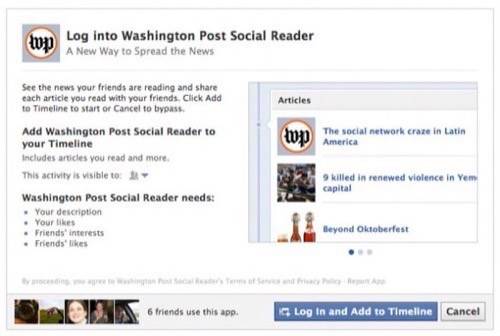
If you do actually read the article, it’s done inside of Facebook and you see a sidebar showing what others are reading.
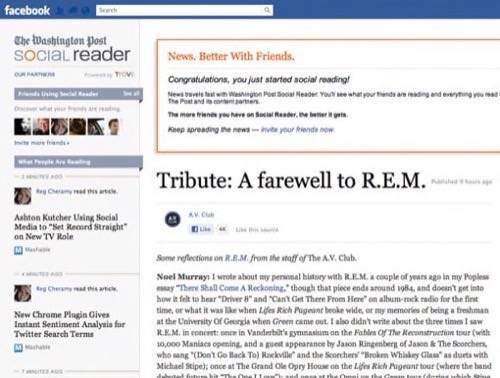
The Guardian app, which you can add to Facebook by clicking here, is slicker. The design of the app feels very much like The Guardian’s actual website. As a publisher, I guess that does scare me a little. Because, that’s right, there are no ads from the publisher within Facebook. Although, it’s not much different from making your content available as an RSS feed and to apps like Flipboard.
As a user, whether I want to use Facebook as my daily news reading platform is another matter. Time will tell.
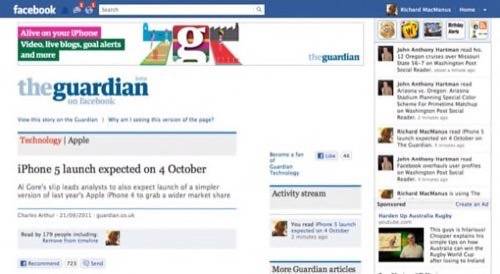
So to reiterate: anytime you read something in a Facebook app like The Guardian and Washington Post, it automatically gets put into your timeline and made available to friends and subscribers (who you may not even know).
That has the potential to make your Facebook news feed very noisy, although it also explains why Facebook is attempting to create a newspaper-like experience on your Facebook homepage. I had misgivings about that, just as I have concerns over how much information this adds to my Facebook news feed. Is it really necessary to share every single thing I read or (just as likely) stories I click on and end up not fully reading? If “read” in Facebook was a button, I would be much more selective.
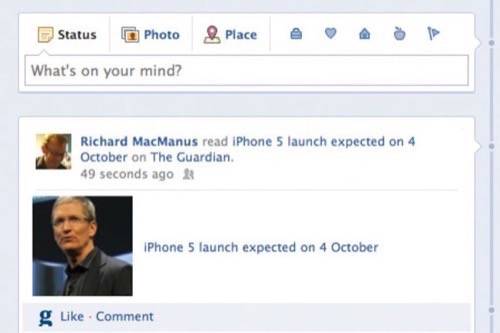
Perhaps this is just the way Facebook is heading: everything automatically flows through your timeline. Every article you read, each song you listen to, anything you watch. That’s kind of scary, although it also means that more is automated. Which means less manual updating, so maybe it’ll turn out to be a good thing.
How automated “read” updates pan out will depend on how Facebook’s users react to this. It’s going to be controversial. Because think about it: how long before one of your friends reads something in a Facebook social news app that they would’ve preferred not to display in their News Feed?
















